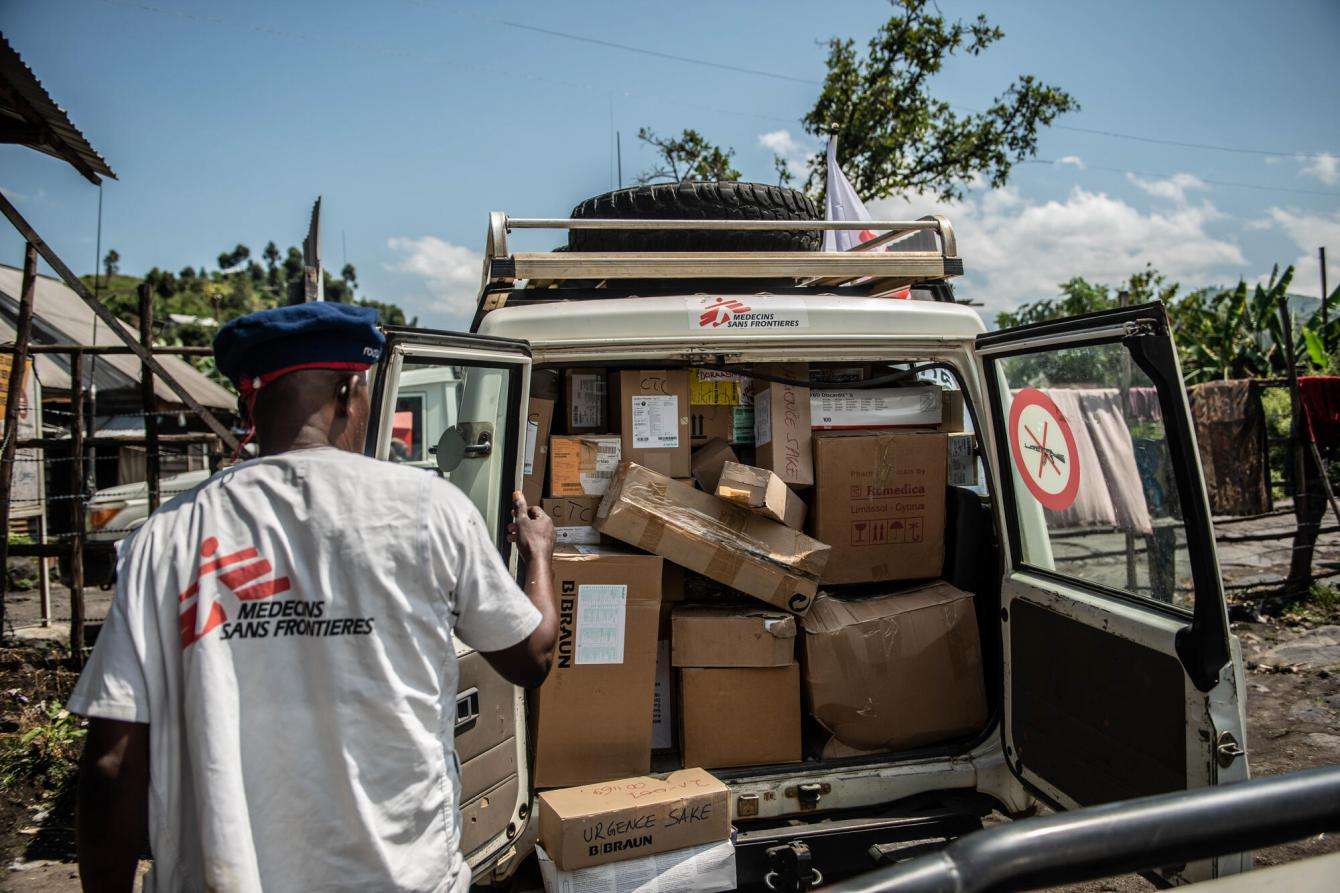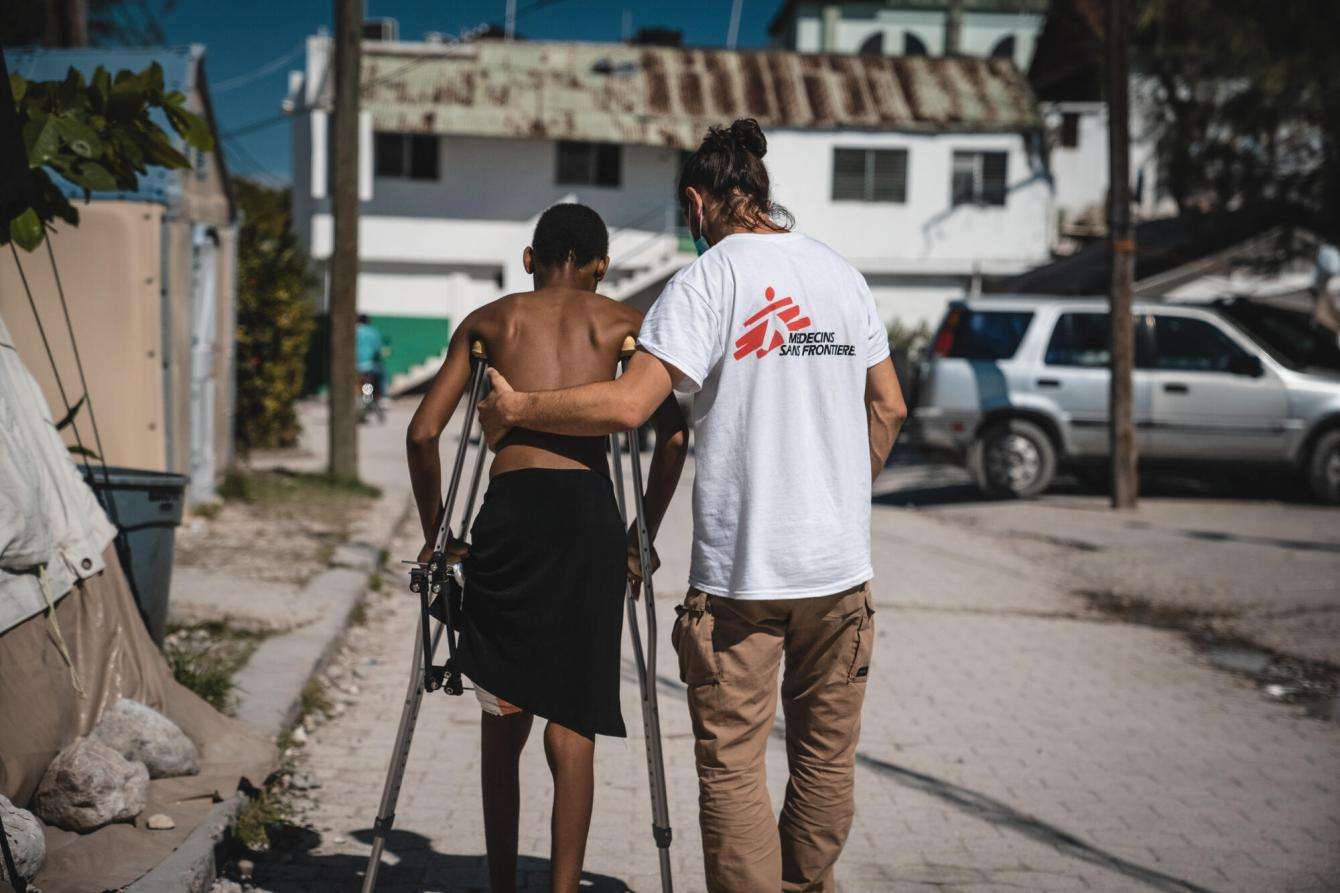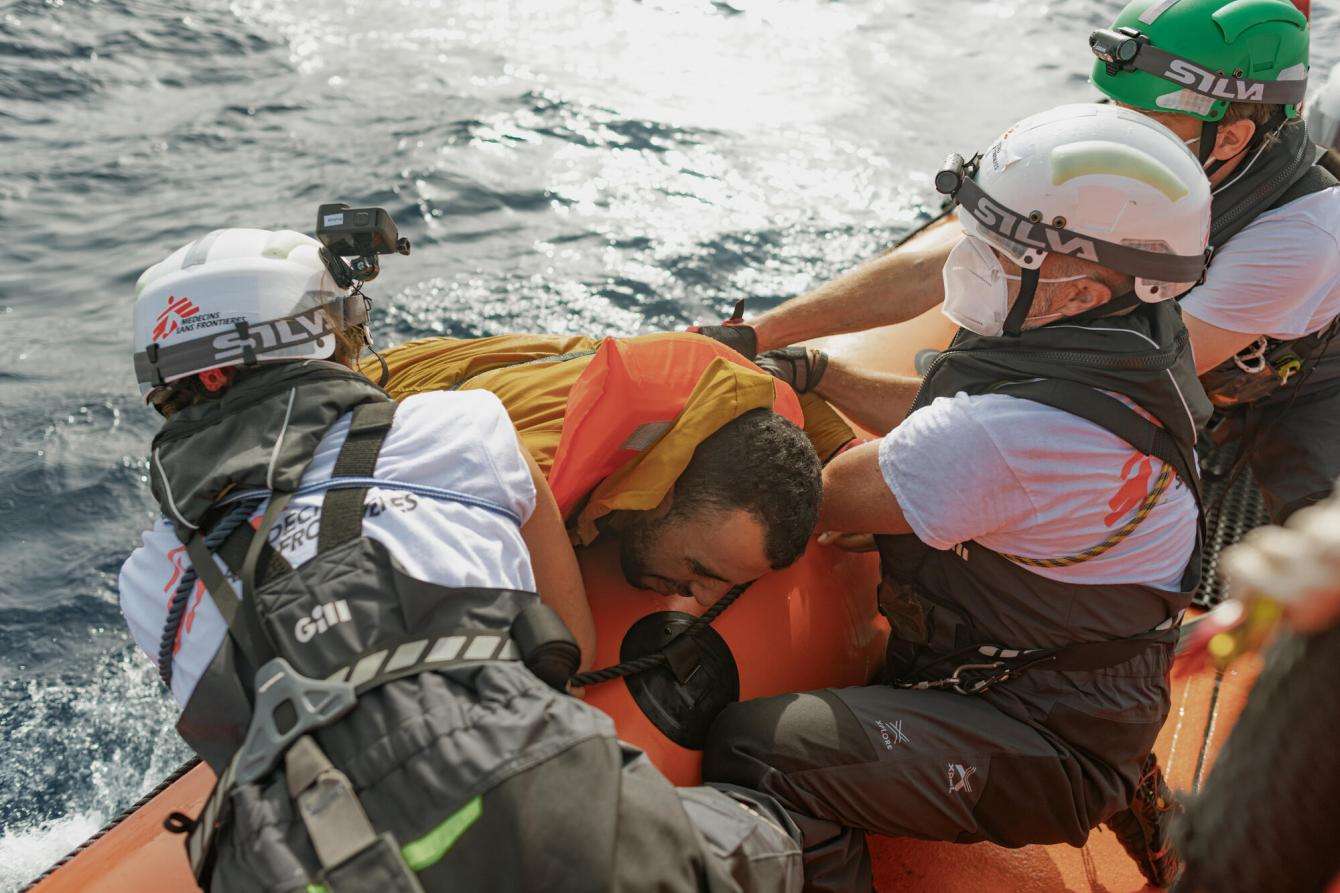Your impact in 2021
How support from our donors helped us provide lifesaving care when minutes mattered.
90% of our funding comes from individual donors. Learn how you can support MSF’s lifesaving care with a gift.
How support from our donors helped us provide lifesaving care when minutes mattered.
Disasters didn’t wait their turn in 2021, and Doctors Without Borders/Médecins Sans Frontières (MSF) teams in over 70 countries didn’t hesitate to respond—even as they continue to address the ongoing pandemic. Because minutes matter when lives are on the line.

Every year, MSF-USA publishes an Annual Report detailing the emergency humanitarian medical action we carried out—where we worked, the challenges we faced, and the differences our supporters helped us make in the lives of people made vulnerable by conflict, disease, natural disasters, and exclusion from health care.
The support of our donors allows us to go where we’re needed most—when we’re needed most—by helping us remain independent, impartial, and neutral. Before we look at the challenges ahead, we’re taking a moment to review the incredible work that was made possible this past year thanks to the generosity of this community.
Last January, a critical oxygen shortage in Brazil led the health system to collapse in Manaus, the capital of the Brazilian state of Amazonas. In response, MSF sent teams to São Gabriel da Cachoeira and Tefé—two remote towns a few days’ boat journey upriver from the state capital.
Needs were great in Tefé—at one point two-thirds of patients needed oxygen treatment, but they had nowhere to go because hospitals in Manaus are full and struggling to keep up with the current demand. MSF teams stepped in to save lives while looking for alternative solutions for critically ill patients to get the specialized assistance they need.
In São Gabriel da Cachoeira, MSF is supporting health centers established by the Ministry of health and helping to improve COVID-19 testing. “The test results come out in about an hour and can be done in town without having to send the samples to Manaus, as was the case until now,” said Irene Huertas Martín, coordinator of the MSF project in São Gabriel da Cachoeira. Rapid testing is a crucial part of managing an overwhelming situation and appropriately tracking the state of the virus.

On May 22, the eruption of Mount Nyiragongo, considered the most dangerous volcano in Africa, displaced more than 400,000 people in North Kivu province, Democratic Republic of Congo (DRC). Lava cascaded toward the densely-populated city of Goma, engulfing four villages and impacting others.
Local MSF teams in Goma and the nearby city of Sake immediately mobilized to support survivors. In addition to providing health care and essential services, MSF teams focused on providing fresh water and sanitation services to prevent the spread of cholera, treating patients with the disease, and monitoring cases in the region.

At 8:30 a.m. on August 14, a massive 7.2 magnitude earthquake rocked the southern region of Haiti. In the hours following the earthquake, MSF sent 100 tons of emergency supplies, including materials for temporary medical structures, water supply systems, and first aid.
To respond to evolving needs, Haitian and international MSF staff operated mobile clinics and provided surgical interventions, basic medical care, and water and sanitation services.
In addition to providing care for immediate needs, MSF teams helped displaced families access clean water and sanitation services to prevent the spread of disease that can often occur in places with damaged infrastructure in the wake of earthquakes.

MSF began working in Afghanistan in 1980. Forty-one years later—despite political instability and active conflict, a dedicated local staff of 2,300 health workers maintained operations in all five provinces where MSF maintained projects.
The number of patients in our care multiplied after the fighting stopped, revealing thousands of people who had delayed seeking medical care.
In response, MSF clinics provided emergency care, like surgical interventions for injuries, while ensuring access to ongoing care including treatment for drug-resistant tuberculosis, prenatal care, and so much more.

The past days have illustrated the humanitarian catastrophe taking place at the southern border of Europe. With only humanitarian vessels monitoring the world’s deadliest migration route, the need for more search and rescue capacity is desperately needed.
Caroline Willemen, MSF project coordinator onboard the Geo Barents
The Mediterranean Sea is the world’s deadliest migration route. Fleeing violence and exploitation at home, many choose to risk their lives crossing the rough sea in fragile boats. In October 2021, MSF’s search and rescue vessel, the Geo Barents, rescued nearly 400 survivors in less than 2 days.
Some humanitarian crises make the headlines—others don’t. Unrestricted support from our donors allows us to mobilize quickly and efficiently to provide lifesaving medical care to the people who need it most, whether those needs are in the spotlight or not. And your donation is 100 percent tax-deductible.
© Médecins Sans Frontières 2024 Federal tax ID#: 13-3433452
Unrestricted donations enable MSF to carry out our programs around the world. While we try to honor requests to earmark, should we receive more gifts than we can use for a program, we will reallocate them where the needs are greatest.
For Donors
For Supporters
For Media
For Recruits
General Interest
© Médecins Sans Frontières 2024 Federal tax ID#: 13-3433452
Unrestricted donations enable MSF to carry out our programs around the world. While we try to honor requests to earmark, should we receive more gifts than we can use for a program, we will reallocate them where the needs are greatest.
Your gift helps us provide medical humanitarian aid for hundreds of thousands of people each year.
Learn more87%
Programs
12%
Fundraising
1%
Management & General Admin

We need your support to continue this lifesaving work.